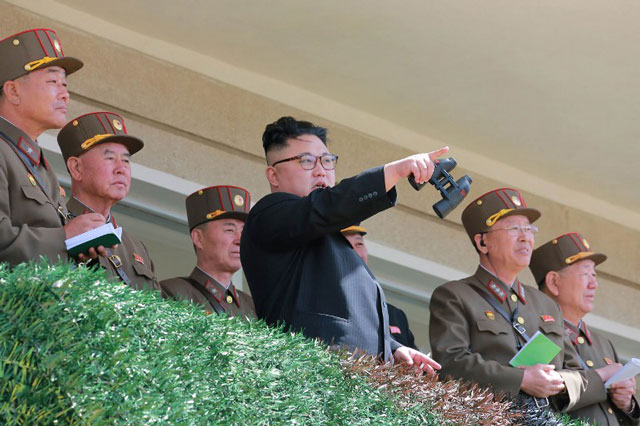
Take cover in a sturdy building or get underground.
Tokyo, Japan | AFP | That’s the emergency advice given to the Japanese people in the event of a North Korean missile strike.
But there are two big problems: most Japanese homes are made of wood and lack a basement. In the countryside, there is often no building made of concrete.
And with only a matter of minutes from launch to impact, there’s simply no time to take cover.
As North Korea this week fired its second missile over Japan in less than a month and threatened to “sink” the country into the sea with nuclear weapons, many Japanese feel a sense of helplessness in the face of the threat from Pyongyang.
Sushi chef Isamu Oya, 67, who runs a restaurant in the small fishing town of Erimo, right under the flightpath of Friday’s missile, summed up the feelings of many.
“The government told us to take cover in a stable building or underground, but there isn’t one here. We have no choice but just do nothing.
“Scary? Yes, but we can’t help it.”
Japan is one of the most seismically active countries in the world and also prone to extreme weather events, so citizens are well-drilled in emergency evacuation, and the authorities have a slick — if not infallible — warning system in place.
When the missile was detected, the J-Alert system immediately kicked in, warnings blared from loudspeakers, regular TV programming was interrupted and text messages sent to every mobile phone.
Local authorities and schools regularly stage drills to prepare residents in the event of a big earthquake and this year many exercises included practising how to take cover if a missile is launched.
– ‘No way’ to survive –
South Koreans have lived under the threat of attack from the North for decades, and are renowned for their phlegmatic attitude to its provocations.
When Seoul holds its regular civil defence exercises, officials often struggle to usher citizens into the underground shelters that are spread throughout the country.
Life carried on as usual in Seoul on Friday, and while the stock market initially fell on news of the missile test, within a few hours it was in positive territory.
“For me, it’s just business as usual,” said former businessman Noh Suk-Won, 60. “The North is flexing its military muscle to force the US to engage in negotiations. It’s not going to throw missiles on our heads.”
But polls show the Japanese are far from blase about the threat.
In a survey published last week by the NHK channel, more than half (52 percent) said they were “very worried” and around one third said they were “worried to some extent.”
 The Independent Uganda: You get the Truth we Pay the Price
The Independent Uganda: You get the Truth we Pay the Price



